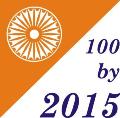Benchmarking with the best in your class
- Thothathri Raman

- Oct 27, 2020
- 3 min read
Updated: Oct 30, 2020

SEAA Trust New Delhi has been since its inception pushing for the Indian business schools that were suffering from large quality related issues to benchmark with the best in their respect class. The idea is to discourage institutions to emulate the much bigger institutions purely based on their brand equity like, Harvard, Kellog, INSEAD et., and in the process learn nothing or worse.
Our conferences have always been focused on bringing the awareness of what works and what doesn't from the experience of the others in the world and using the accreditation platforms bring in the best on a sustainable basis.
SEAA Annual Conference Theme titles 2008 to 2020

We believed instinctively that if you get the quality aspects right everything would fall in place. The shortest and surest way of acquiring high quality is to opt for independent peer reviewed accreditation which we advocated. Also quality should not be treated as a mundane me to affair but should be a cutting edge one which means the quality bar has to be constantly raised at the institution. With that sort of target in mind, we also insisted each of the faculty at the campus should have a personal mission which should coincide or meet with the institutional mission to arrive at a practical and holistic strategy to deal with quality.
Faculty has been our primary focus. International accreditation we believed would bring in the following benefits
Faculty exposure to international peers
Joint research and publishing
International collaborations for academic, student and research exchange
Opportunity for the Indian faculty leadership to mentor overseas campuses toward accreditation once they themselves acquire accreditation for their institutions
We tried to achieve this goal by setting a target of getting at least 100 schools shortlisted with top five accreditation systems AACSB, EFMD, ACBSP, AMBA and IACBE. We also included SAQS in the list after a gap. The 100 by 2015 campaign ran from around 2010 to 2015 and we had apart from the annual conferences what brought all the agencies together on the same platform also conducted regional conferences, round tables and such other. The intense campaign definitely contributed to building awareness about the benefits of international accreditation and the way forward for the business schools.
We also had our academic partners Peregrine Academic Services, now called Peregrine Global services, as a strong support in helping us in our cause. Also many institutions who did not actually opt for international accreditation at least initially stood by us believing in our cause in the spirit of peer support which is the underlying aspect of any independent accreditation system.

The second campaign that kicked in after 2015 "100 by 2020" proved to be more tough as the awareness had already been created to some extent and many schools had taken up accreditation. But the going was slow and it took anything between 3 years to 7 and in some cases more than a decade even to get their accreditation which became a dampener for some business schools.

Accreditation, especially the global one centers around the declared mission of the school, which interestingly many Indian schools did not even give any attention to. The logic behind mission centric accreditation is that once the goal is clear and the commitment is there, then it is a question of building from thereon and benchmarking with the best in your class.
We had our publications, conference books, the annual Handbook that was constantly updated with the latest on accreditation standards, all with a view to continue to build awareness which we succeeded to some extent.

It is our strong belief, that accreditation advocacy is still relevant as just a small percentage of schools have taken to accreditation Indian or international and there many that remains to understand the power of benchmarkiing with the best in your class. Our work will continue.




Comments